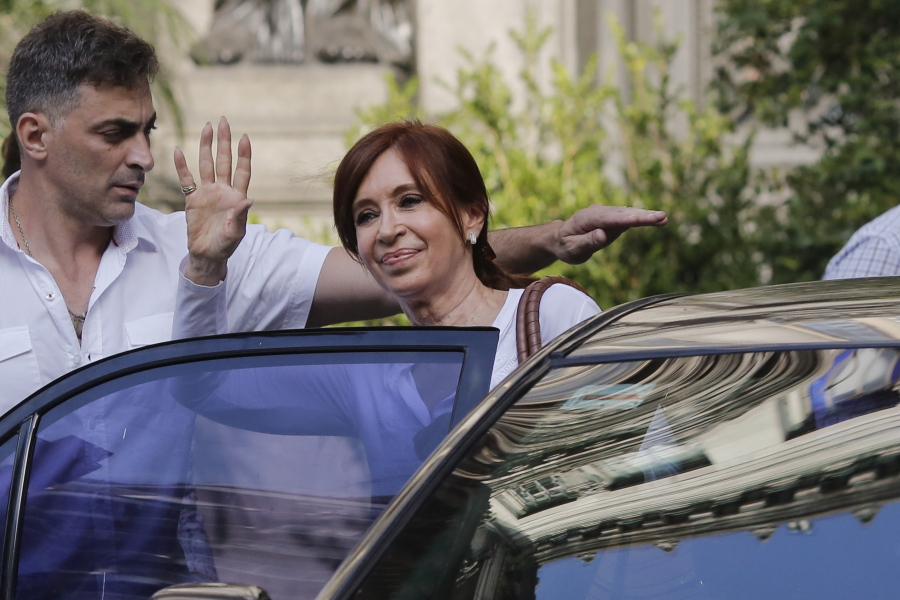BUENOS AIRES, Argentina — A federal judge on Thursday indicted Argentina’s former president Cristina Fernández de Kirchner on treason charges and sought her arrest over allegations that she covered up possible Iranian involvement in the 1994 bombing of a Jewish community center in Buenos Aires.
In court documents, Judge Claudio Bonadio accused Fernández of obfuscating the Iranian role in the attack, which killed 85 people, in exchange for a potentially lucrative trade deal. The court requested the lifting of her immunity from prosecution, a protection she enjoys as a sitting senator.
Underscoring the seriousness of the charges, authorities conducted raids linked to the case Thursday, arresting three of Fernández’s former aides and associates. Héctor Timerman, her former foreign minister, was placed under house arrest.
The charges stem from an investigation initially conducted by Alberto Nisman, a crusading prosecutor who accused Fernández of a coverup in 2015 and later was found dead in the bathroom of his apartment with a bullet in his right temple.
Although rare, the lifting of parliamentary protection is not unprecedented. In October, the National Congress voted to lift the protection afforded to her former planning minister, Julio De Vido, who was facing charges of fraud and corruption.
Fernández, a Peronist, served as president of Argentina from 2007 to 2015 and once formed part of a cadre of left-leaning leaders in Latin America, including Venezuela’s late Hugo Chávez. She has repeatedly denied any wrongdoing while in office, and on Thursday she lashed out at the fresh charges.
“This has nothing to do with justice or democracy,” Fernández told reporters in Buenos Aires. “There’s no cause, no crime, no motive. There was a judgment without cause. God knows it, the government knows it, President (Mauricio) Macri knows it, too.”
There is little precedent for prosecuting treason in Argentina. Local media outlets have reported that the country’s only previously applied charge of treason dates to 1936, when Maj. Guillermo Mac Hannaford was accused of selling information to Bolivia and Paraguay.
And although Fernández has only about a dozen hardcore supporters in the Argentine Senate, observers say it does not appear probable that the chamber will revoke her immunity. Some argue that such a move could risk turning her into a political martyr for a left-wing Peronist movement that has been losing traction in Argentina since Macri took office in 2015.
The charges come a month after a new police report reignited the Nisman case, which has captivated Argentina. His mysterious death came days after he alleged that Fernández and Timerman had colluded to shield Iran’s role in the car-bomb attack on the AMIA Jewish community center. In 2005, Nisman concluded that Ibrahim Hussein Berro, a Hezbollah operative from Lebanon with Iranian backing, had carried out the act of terrorism.
An initial report concluded that Nisman died of a self-inflicted gunshot wound. But a new police report obtained by the Associated Press in November listed key evidence that suggested foul play. Nisman’s nasal septum, for instance, was broken, and he had suffered blows to his hip and elsewhere. A strong anesthetic was found in his body.
Before his death, Nisman reportedly wiretapped officials and uncovered information in connection with a “Memorandum of Understanding” that Argentina signed with Iran on Jan. 27, 2013, in Ethiopia. He argued that it outlined a plan to “collaborate with Iran on its goal to accelerate and support nuclear development” in exchange for an oil-for-grain trade deal and a finding by Argentina that the Iranians were innocent in the 1994 attack, official court documents said.




